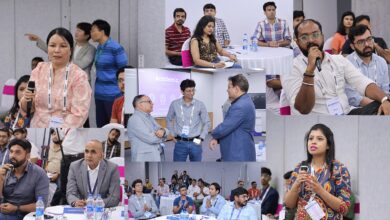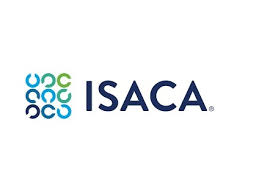Meta and ‘India AI’ to Foster Advancements in AI Technologies in India
Meta and ‘India AI’ to Foster Advancements in AI Technologies in India
[Bengaluru, 27 July 2023] – Recent breakthroughs in generative AI have triggered many conversations on the role of these technologies in fostering innovation and coming up with solutions for the real-world. Advancing its efforts towards an open approach for AI, Meta signed a Memorandum of Understanding with the ‘India AI’, an independent business unit (IBD) under Digital India Corporation (DIC), Ministry of Electronics and Information Technology (MeitY), Government of India, to foster collaboration in the field of Artificial Intelligence (AI). This collaboration will establish a framework of cooperation between ‘India AI’ and Meta in the field of Artificial Intelligence & Emerging Technologies including to make Meta’s open-source AI models available for use by Indian AI ecosystem.The MoU was signed by Abhishek Singh, CEO of ‘India AI’ and Shivnath Thukral, Director, Public Policy, Meta in India.Nick Clegg, President, Global Affairs, Meta, said, Meta’s open approach to AI innovation is complementary to India’s leadership on digital issues. Giving businesses, startups and researchers access to these technologies can open up a world of social and economic opportunities. With close collaboration between government and industry, we can strengthen India’s digital leadership and help to ensure AI tools are built for India’s unique needs.
Abhishek Singh, CEO of ‘India AI’, said, India is at the forefront of adopting digital technologies and it is evident that AI and Emerging Technologies will play a pivotal role in expanding the advantages of technology to a broader population. Through this collaboration with Meta, the joint research and development endeavours will tackle large-scale challenges by leveraging cutting-edge AI technologies like Llama and other open-source solutions.
India AI’ and Meta have entered into a collaboration aimed at advancing research and development in AI & Emerging Technologies, seeking breakthroughs in AI technology and its applications. Additionally, both organisations may also consider establishing a Centre of Excellence to nurture the startup ecosystem of AI & other Emerging Technologies. Leveraging Meta’s AI research models like LlaMA, Massively Multilingual Speech, and No Language Left Behind, the collaboration will focus on building datasets in Indian Languages to enable translation and large language models, with priority given to low-resource languages. This effort will foster social inclusion, improve government service delivery, and spur innovation using large language models, Generative AI, cognitive systems, and translation models.
Furthermore, ‘India AI’ and Meta will strive to enhance accessibility to AI compute resources for researchers, startups, and organizations with limited resources. Knowledge sharing and collaboration in AI & Emerging Technologies will be facilitated through workshops, seminars, conferences, and similar platforms.
Additionally, ‘India AI’ and Meta share a common goal of raising awareness about AI’s potential benefits and risks among various stakeholders, including policymakers, businesses, civil society, and the general public. They will also work together to promote responsible AI practices through the collaborative development of comprehensive tools and guidelines.
Meta’s AI research models being already being tested by Indian academic institutions
We believe an open approach is the right one for building with AI models of today’s capabilities, and need to work in collaboration with others in industry, government, civil society and academia to advance them in a responsible way, and they need to find ways to bring people into the process as they develop the guardrails that AI systems operate within.
To help build the foundation blocks for translation of low-resource languages, Meta has created and expanded open data sets for research use like ccMatrix, Vox Populi and released benchmarking datasets like FLORES-200, Casual Conversations v2 Dataset for academic use.
Our AI research model, No Language Left Behind (NLLB-200) enables translation of 200 different languages (including 25 Indian languages), helps improve the way researchers evaluate and expose potential algorithm biases in their computer vision and audio systems. For some Indian-based languages, NLLB-200’s translations were more than 70% accurate, proving to be a game changer for a country as diverse as India.
Our research efforts have also made significant progress on expanding speech recognition technologies for low-resource languages with the Massively Multilingual Speech (MMS) project speech-to-text, text-to-speech model for 1,100+ languages (including around 60 Indian languages) for research use cases.
India’s velocity of change on back of adoption of new technologies is inspirational
India has been at the forefront of technological advancements for almost a decade now. With a thriving developer base and third largest start-up ecosystem in the world, India can use technologies like AI to further strengthen its digital governance and applications that have the ability to transform everyday lives of people. As per the OECD observatory, in 2022 Indian developers have already made maximum contributions to the public AI software development projects.
By making AI models available openly we are giving these developers, businesses, startups, entrepreneurs, and researchers access to tools developed at a scale that would be challenging for them to build themselves, backed by computing power they might not otherwise access. This will open up a world of opportunities for them to experiment, innovate in exciting ways, and ultimately benefit from economically and socially.
Conclusion:
Meta is on the bleeding edge, with world-class research and technical leadership matched with deep investment and global scale. This means our teams are uniquely positioned to work on some of the most challenging problems out there—and to apply that work to building real products that solve real problems.
Throughout our company’s history, we’ve experienced the benefits of an open source approach when innovating in other areas of the business. Our engineers developed and shared frameworks that are now industry standards — like React, a leading framework for making web and mobile applications, and PyTorch, which is now the leading framework for AI. These became commonly used infrastructure for the entire technology industry. We believe that collaborations like the one with the Ministry of Electronics and Information Technology, Government of India will be a significant step forward in supporting the development of helpful and safer generative AI too.



